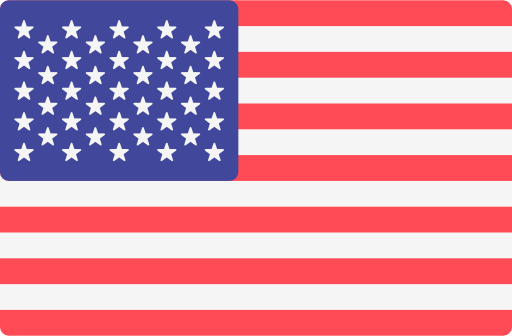Does Hand Washing Help Decrease The Spread of Covid19?
Does Hand Washing Help Decrease The Spread of Covid19
The Coronavirus is an ailment that has to do with the respiratory system; what this means is that it is commonly transmitted mostly through viral droplets from sneezes and coughs. If you do not cover your mouth and nose when coughing or sneezing with a tissue and safely throw away in a covered bin if not, the virus can land on surfaces and if someone else gets in contact with the polluted surface, the virus will be transferred onto their hands.

Having the virus on your hands can lead to you infecting yourself by either touching your nose, eyes, or mouth. Do not entertain the thought that you do not touch your face often because research conducted in 2015 revealed that people touch their faces at least twenty-three times in an hour. Regular hand-washing keeps you from contracting the virus through touch. Every individual has a part to play in ensuring the decrease in the transmission of the Coronavirus.
The Coronavirus is an enfolded virus which means it has a covering referred to as an ‘oily bilayer’. The atoms making up this covering have a tadpole-like form with a hydrophilic round head and a hydrophobic tail. These atoms organize themselves to form two-layer piles with their tails inward positioned and their heads positioned outward. These atoms are closely knit together to protect their hydrophobic tails from the water in the droplets released when you sneeze or cough. The hydrophilic heads are very ‘gummy’, which means the virus is quite functional at gumming to your hands.
Soap atoms also have this same tadpole-like form, which is what makes it very useful. Giving a case scenario of when there is an oily substance on your hands, water cannot remove the oil but if you make use of soap, the story changes; the hydrophobic tail will hang on to the oily substance whilst the hydrophilic head will equally hang on the water. So, with the soap application, the oily substance will come off. Now, since, the soap atoms have similitude with the ones that form the outer covering of the virus, the atoms in the oily bilayer are as greatly drawn to the soap atoms.

This scatters the well-arranged covering that encapsulates the virus, automatically melting it in the flowing water and eliminating the virus. Hand sanitizer that is alcohol-based also eliminates the viruses where soap and water are unavailable. Alcohol is medicated and can eliminate encapsulated viruses such as coronavirus, but ensure the sanitizer contains sixty to ninety-five percent alcohol. Furthermore, if your hands are dirty, you will first have to wash them with soap and flowing water to get rid of the dirt. It is regrettably unfeasible to determine if any distinctive case of the Coronavirus could have been averted by improved hand-washing.
As feasible as it is to contract the Coronavirus from touching your face with virus-polluted hands, so also can you catch it straight from the sneezes and coughs of an infected individual. Hence, whilst washing your hands will not eradicate the risk of getting infected, it is a wise and strong safety course of action.
It is obvious though that these hygiene guidelines like self-isolation when sick, hand-washing, and getting rid of tissues, etc. avert the transmission of respiratory ailments; concerning the break-out of the 2003 SARS-CoV in Hong Kong. Since SARS-CoV which is also a form of coronavirus was a new sort, there was no criterion to measure the degree of infestation; what was measured as the frequency of cyclical respiratory ailments such as influenza.
A comparison to the estimation in figures for the past half-decade, the occurrence of all of these cyclical ailments became minimal. The variance was distinctly comprehensible from April to June when the populace was the most uncompromising with their environmental health. According to Bloomfield, the coronavirus is not especially a hazardous ailment for many, affirming further that many will only manifest a mild flu-like ailment after then get better. He went on to point out the challenge which is the clause of infecting others.
Mathematician Hannah Fry exhibited in a simulation gotten from the program titled BBC pandemic that washing of hands is exceptionally strong in considerably reducing the infection of flu-like viruses. Slowing the transmission is simply explained as ‘flattening the curve’. Meaning the rate of infections will rise to its peak, and then go on a downward flow again. If the procedure explained occurs too quickly, a lot of infections will happen at the same time, and the peak will be off the roof and the resultant effect will be an overwhelm of the medical agencies and outlets.
Hand washing procedure
Commence by wetting your hands with water; either cold or warm: research conducted at the Rutgers University in the US in revealed that cold water was equally as functional as hot in getting rid of E. coli. Following, put either liquid soap or bar soap, even though some researchers have reported that bacteria can be active on the surface of a bar of soap, some other researchers reported that sharing a bar cannot spread disease. Hence, exhaustively massage the soap all over your hands, between your fingers and your fingertips, and ensuring not to miss your thumbs. This should not take you less than twenty seconds. Rinse your hands vigorously to get the soap off your hands. Then, dry them meticulously, ideally with disposable paper towels. Immediately you get back to your work area rub on a hand sanitizer.
Bloomfield pointed out that action taken after hand washing matters hence; on getting back to your work station make use of a hand sanitizer. A case scenario as explained by Bloomfield; after washing hands on a train or airplane, in the process of walking back, grabbing seatbacks that would have been touched by many has compromised the handwashing which necessitates the use of a hand sanitizer immediately you get back to your seat.
Frequency rating of hand washing
According to Dr. Craig Shapiro, a specialist in pediatric infectious diseases in Delaware, USA, frequent hand washing could easily get the skin on your hands parched. So, ensure you moisturize your hands as frequently as you wash them. He pointed out that using soap on broken skin can be unbearable and individuals might be less encouraged to wash their hands.







Leave a comment